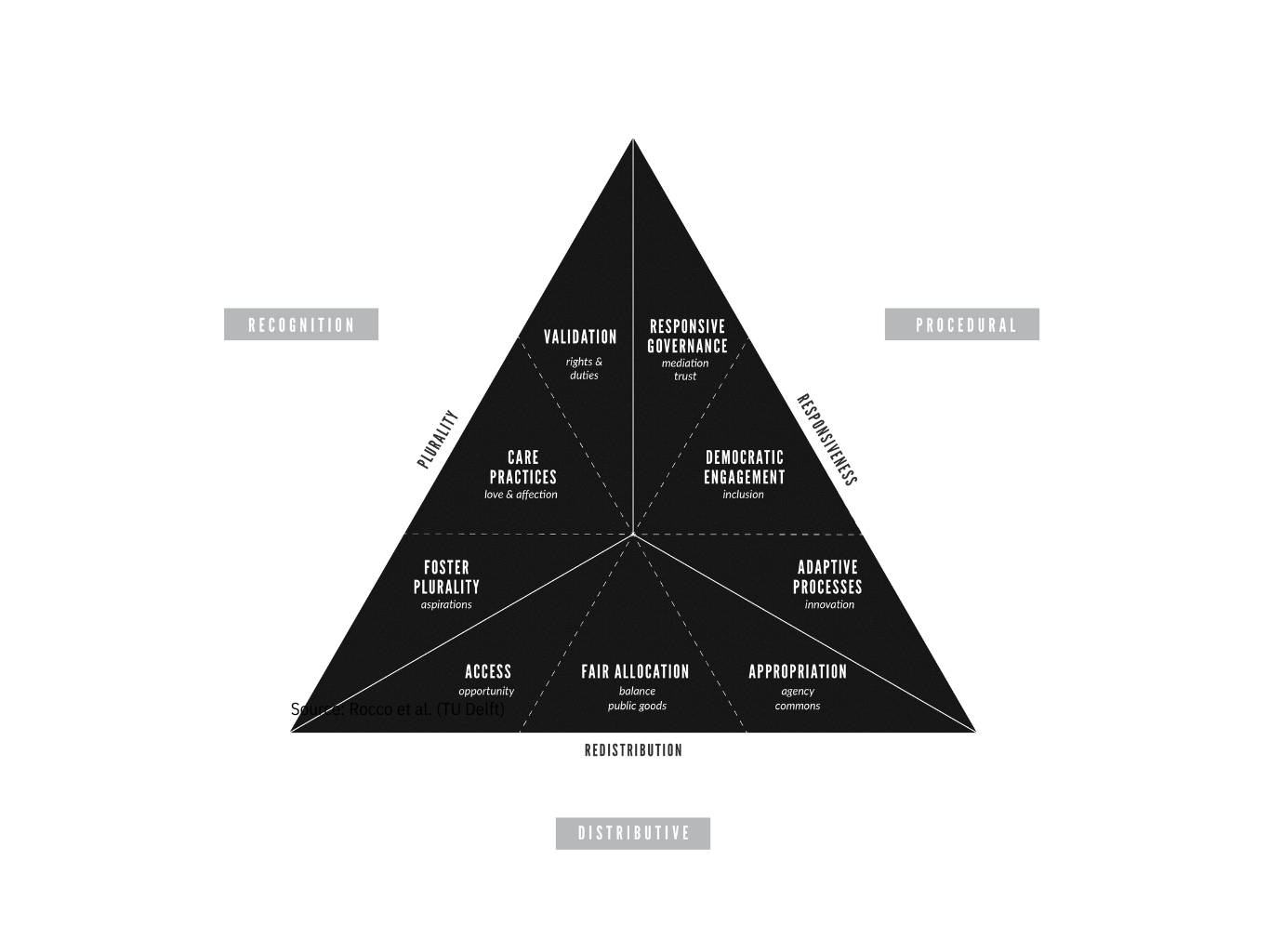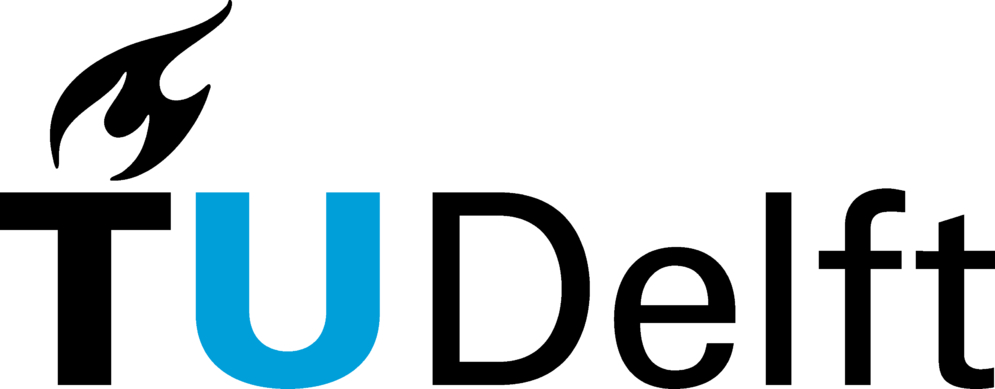
The Spatial Justice Package, developed by TU Delft, is a comprehensive set of tools designed to integrate spatial justice into urban planning and design. It addresses both distributive justice, ensuring fair access to urban resources, and procedural justice, promoting inclusive governance and decision-making. The package includes six modular tools tailored for use by urban practitioners, researchers, policymakers, and communities to assess and advance social equity within sustainability transitions.
These tools are: the Spatial Justice Conceptual Model (SJCM), a visual and textual framework for understanding justice dimensions; the Spatial Justice Rubric (SJR), a qualitative assessment guide for practical use; the Justice Readiness Level (JRL), a benchmarking system for tracking justice integration; the Spatial Justice Benchmarking Tool (SJBT), an Excel-based dashboard for evaluating justice efforts; the Spatial Justice Handbook, a detailed guide for applying justice principles in research and practice; and Citizen Voice, a participatory digital survey tool hosted on GitHub for gathering input from stakeholders and citizens. Together, the tools support the analysis of justice in spatial planning, the evaluation of fair decision-making, and the collection of inclusive, community-based insights, particularly from marginalized groups.
By focusing on spatial justice, this package strengthens the social foundation of sustainability transitions, ensuring that no community is left behind in the shift to a greener, more equitable future.
The Spatial Justice Package supports all five UP2030 principles and is particularly powerful in cities prioritizing inclusive planning, community engagement, and policy transformation.
Juliana Goncalves
J.E.Goncalves@tudelft.nl

Roberto Rocco
r.c.rocco@tudelft.n

Rocco, R., Gonçalves, J. E., & Lopez, H. (2024). The Spatial Justice Handbook. TU Delft. https://doi.org/10.5281/zenodo.12598019
Lopez, H., Rocco, R., & Gonçalves, J. (2024). The Spatial Justice Benchmarking Tool: Evaluation Board. Zenodo. https://doi.org/10.5281/zenodo.14042015
Lopez, H., Gonçalves, J., Rocco, R., & Dąbrowski, R. (2024, October 22). How Just Are Urban Sustainability Transition Plans? Benchmarking Spatial Justice. Zenodo. https://doi.org/10.5281/zenodo.14014381
Lopez, H., Rocco, R., & Gonçalves, J. (2024). The Spatial Justice Conceptual Model: advancing the theory and application of Spatial Justice. Zenodo. https://doi.org/10.5281/zenodo.13936620



